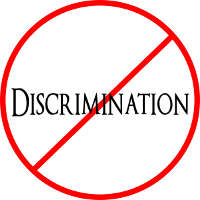 The proposed Employment Non-Discrimination Act, or ENDA, is immersed in controversy. This law would extend the protections already in place against workplace discrimination on the basis of religion, race and age to also cover gender identity and sexual orientation. The bill was passed by the U.S. Senate in early November with bipartisan support: 52 Democrats, 2 Independents and 10 Republicans supported this legislation.
The proposed Employment Non-Discrimination Act, or ENDA, is immersed in controversy. This law would extend the protections already in place against workplace discrimination on the basis of religion, race and age to also cover gender identity and sexual orientation. The bill was passed by the U.S. Senate in early November with bipartisan support: 52 Democrats, 2 Independents and 10 Republicans supported this legislation.
Opposing Arguments
Legislators who have voiced their opposition to the passage of the ENDA have cited four main arguments.
- The law will kill jobs.
- Workers are already protected against this type of workplace discrimination by existing legislation.
- It will increase frivolous lawsuits.
- The ENDA fails to offer religious liberty protection.
Counter-Arguments
Supporters of the ENDA offer counter-arguments to the opposition.
- There is no evidence that this law will have adverse effects on jobs. On the contrary, a large majority of the business community supports this legislation. Over 100 major corporations have endorsed the ENDA. Many of these businesses are in the Fortune 500. These supporters explain that the law requires that a complainant must prove intent to discriminate. This means the employee who alleges discrimination has the burden of proof.
- Though some states, like New York, have laws in place that protect workers from discrimination due to their sexual orientation and gender identity, there are still several holdouts. Currently, 29 states do not protect gay workers from discrimination and 33 states have no protection in place for transgender workers.
- States that do provide this type of workplace protection show no higher percentage of complaints or lawsuits, belying the argument that this law will encourage a high number of frivolous lawsuits. For example, out of the 18,000 employment discrimination claims filed in California in 2011, only 727 of these were on the basis of sexual orientation. This percentage has held steady in California for over a decade.
- The ENDA includes the same exemption for religious organizations that is provided for in Title VII against religious discrimination. Additionally, does the right of a business owner to act on his religious beliefs override the right of a worker to be free from discrimination?
What Comes Next for the ENDA
The ENDA is known as Senate Bill 815. Now that it has passed in the Senate, it will proceed to the House of Representatives. However, the House may stall its passage into law. Voicing opposition to the bill, House Speaker John Boehner has indicated he may not allow a floor vote.
If you’ve been a victim of workplace discrimination in New York, contact us for a confidential consultation.